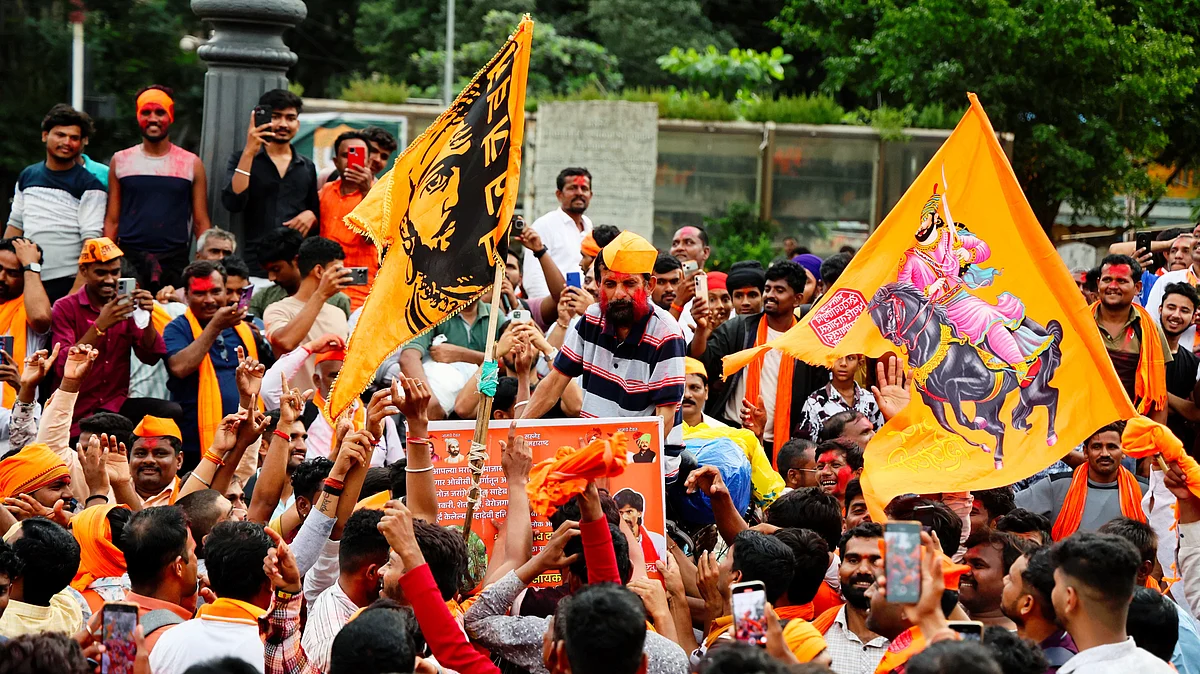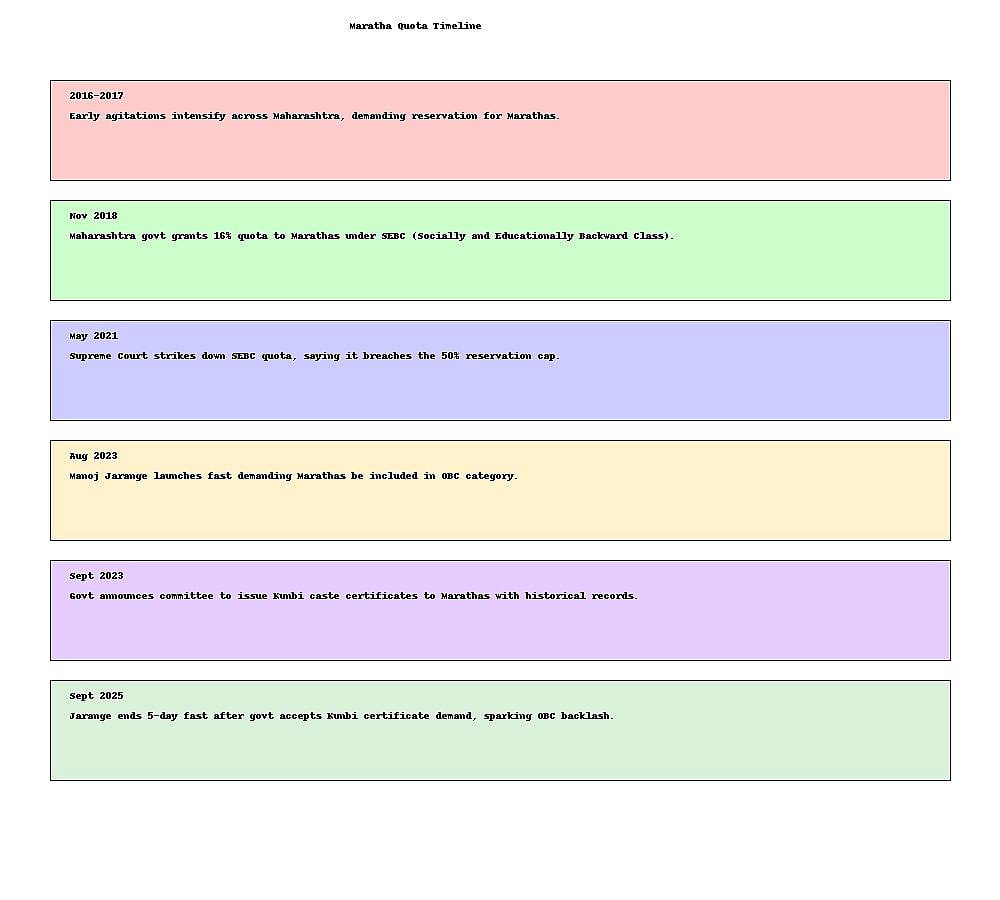OBCs will take to streets: Activist on govt's Maratha quota decision
OBC activist Laxman Hake warns that decision amounts to intrusion into OBC territory, promises retaliation

Govt move to grant Kunbi caste certificates to Marathas sparks OBC backlash
Manoj Jarange ends fast after Fadnavis govt accepts demands
OBC activist warns of protests, questions legality and fairness of quota dilution
The Maharashtra government’s latest attempt to douse the flames of the Maratha quota agitation has lit a fresh fire elsewhere. By announcing that Marathas with historical records of Kunbi lineage can obtain Kunbi caste certificates, the state has effectively provided a pathway for them to claim benefits under the Other Backward Classes (OBC) quota.
The Kunbi community, a traditional agrarian caste, is already recognised as OBC in Maharashtra. Granting Marathas access through the Kunbi tag is meant to pacify protesters who have long demanded reservations in education and jobs. But this workaround threatens to upset the delicate arithmetic of caste-based quotas.
Two activists have come to symbolise the current churn:
Manoj Jarange, the face of the Maratha reservation stir, ended his five-day fast in Mumbai after the government agreed to most of his demands, including the contentious Kunbi certificate provision.
Laxman Hake, an OBC activist, has warned that the decision amounts to intrusion into OBC territory. He insists the government has neither the right nor authority to reclassify Marathas through a mere resolution, and has threatened mass mobilisation of OBCs and Vimukt Jati–Nomadic Tribes (VJNTs) if their share of quotas is compromised.
The state government resolution (GR) relies on the Hyderabad Gazetteer to identify Marathas with Kunbi roots. Revenue records in the gazetteer are treated as historical proof. But Hake dismisses this interpretation as flawed:

“If the gazetteer says Banjara is a Scheduled Tribe, does that mean the government will simply give them ST status?” he asked, pointing out the absurdity of cherry-picking archival records.
He argues that nowhere does the gazetteer suggest that Marathas are a socially backward group entitled to reservation.
The risk, according to OBC leaders, is that the government has opened a Pandora’s box: if historical records can be weaponised, many other communities could claim entry into reserved categories.
The Maratha quota question is not just a social issue — it is a political minefield.
The government’s balancing act: The state's ruling BJP–Shiv Sena–NCP Mahayuti coalition cannot afford to alienate the numerically and politically powerful Marathas, who have often been kingmakers in Maharashtra politics. But it also depends heavily on OBC votes, especially in rural constituencies.
Electoral compulsions: In both Lok Sabha and Assembly elections, both blocs are critical. Alienating one risks mass street mobilisation; alienating both could prove electorally suicidal.
The OBC reaction: Groups like Malis, Telis, Dhobis, and Kolis — principal OBC communities in Maharashtra — see the Kunbi certificate move as a direct encroachment into their already limited share of the pie. They fear their educational and employment prospects will shrink further if Marathas enter the OBC fold.
Court precedents: The Supreme Court in 2021 struck down the separate Maratha quota, ruling that it breached the 50 per cent ceiling on reservations and did not pass the test of “extraordinary circumstances”. The current Kunbi certificate strategy looks like a legal workaround, but experts say it could once again be challenged in court for violating the spirit of that judgment.
Lawyers and activists caution that the government’s move may not withstand judicial scrutiny. Critics argue:
A state government cannot unilaterally alter caste classifications without the sanction of the Central OBC list.
Using gazetteers as the basis for reclassification is historically dubious and legally shaky.
Any increase in the effective number of OBC beneficiaries could be read as a backdoor expansion of reservations, reviving the very questions the Supreme Court already settled.
In short, even if the committee issues certificates, the legal battle is inevitable.
For now, Manoj Jarange has called off his fast, and the government has bought itself temporary peace. But the larger war is only beginning:
OBC activists like Hake are mobilising, vowing not to let their quota space be eroded.
Legal challenges are almost certain, potentially dragging the issue back to the courts.
Politically, both the ruling coalition and the opposition face the same dilemma: how to satisfy the Marathas without antagonising OBCs, whose numbers and influence are equally formidable.
The Maratha quota stir has once again exposed Maharashtra’s most combustible faultline: the competing demands of dominant and backward castes in a state where reservation is both a tool for social justice and a weapon for political survival. The government’s 'solution' may calm the streets for now, but in the courts and villages, the battle is only just beginning.
With PTI inputs
Follow us on: Facebook, Twitter, Google News, Instagram
Join our official telegram channel (@nationalherald) and stay updated with the latest headlines
